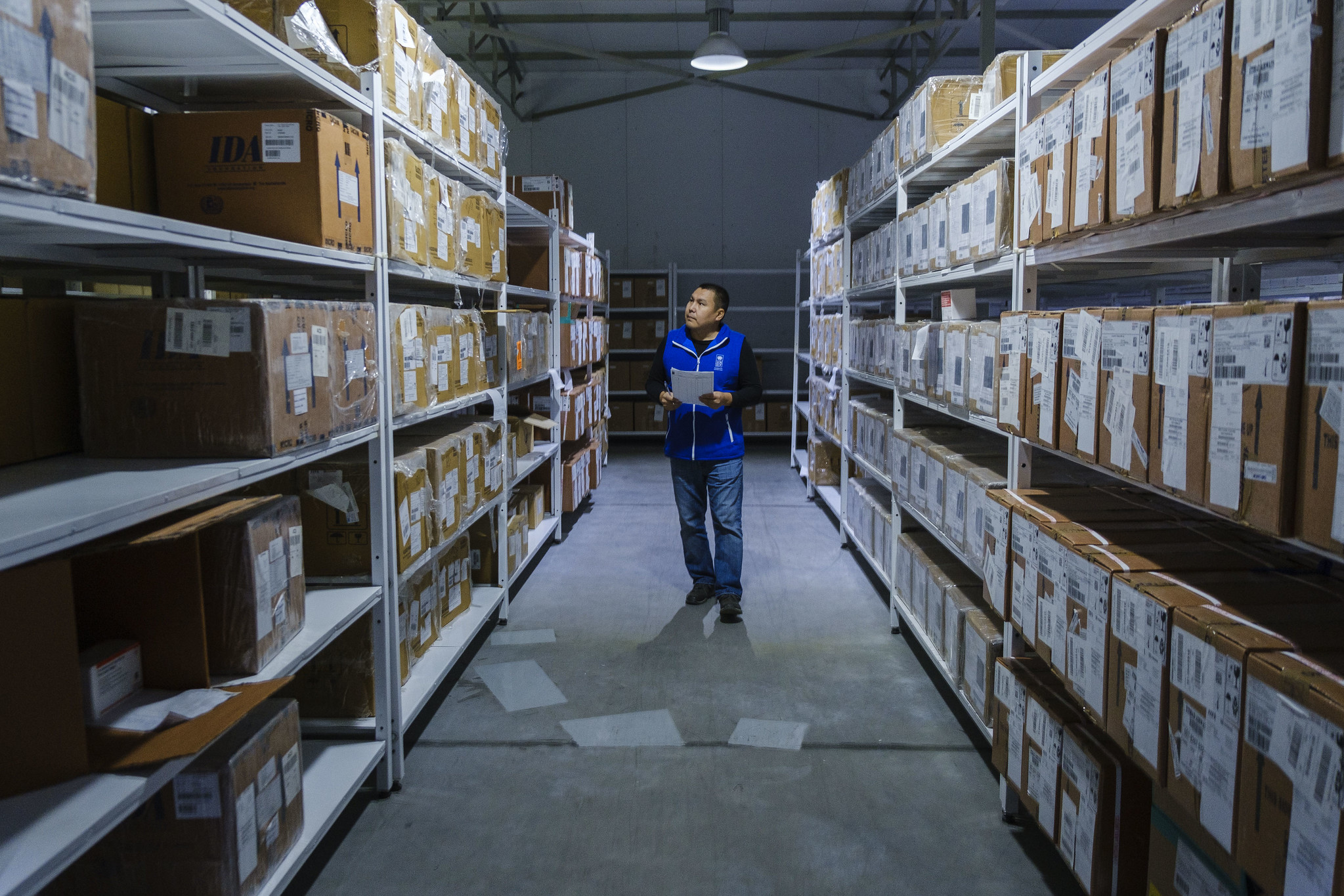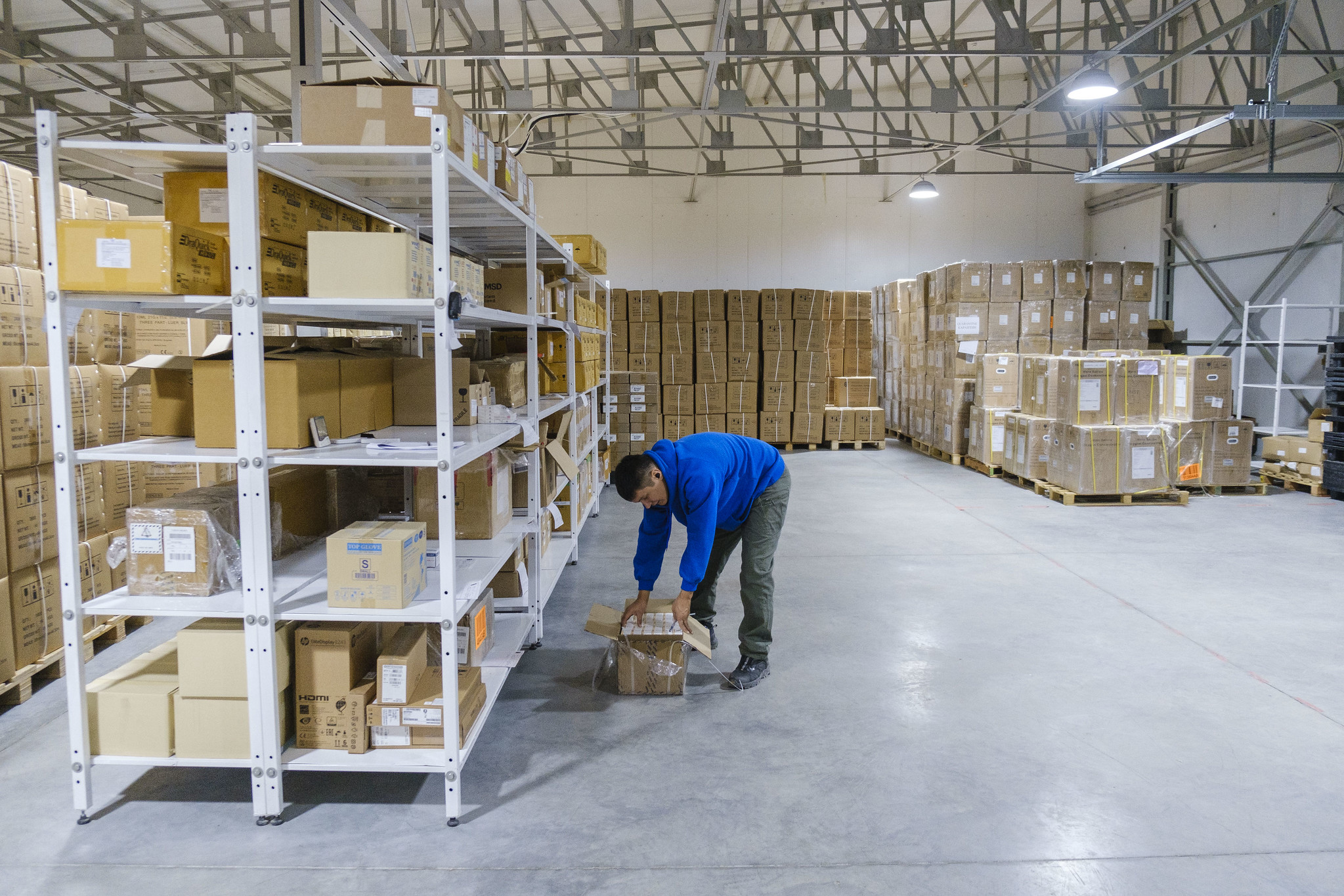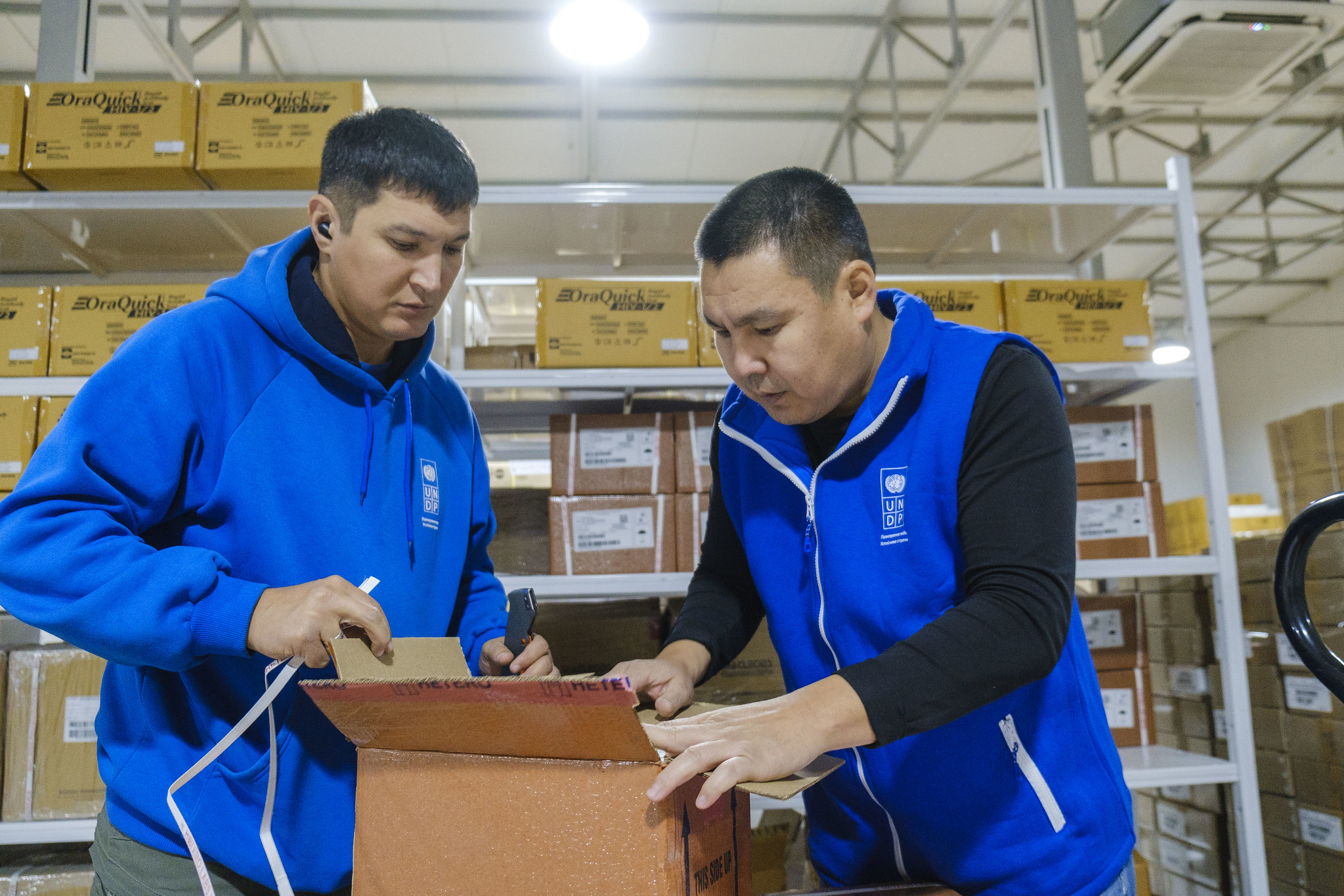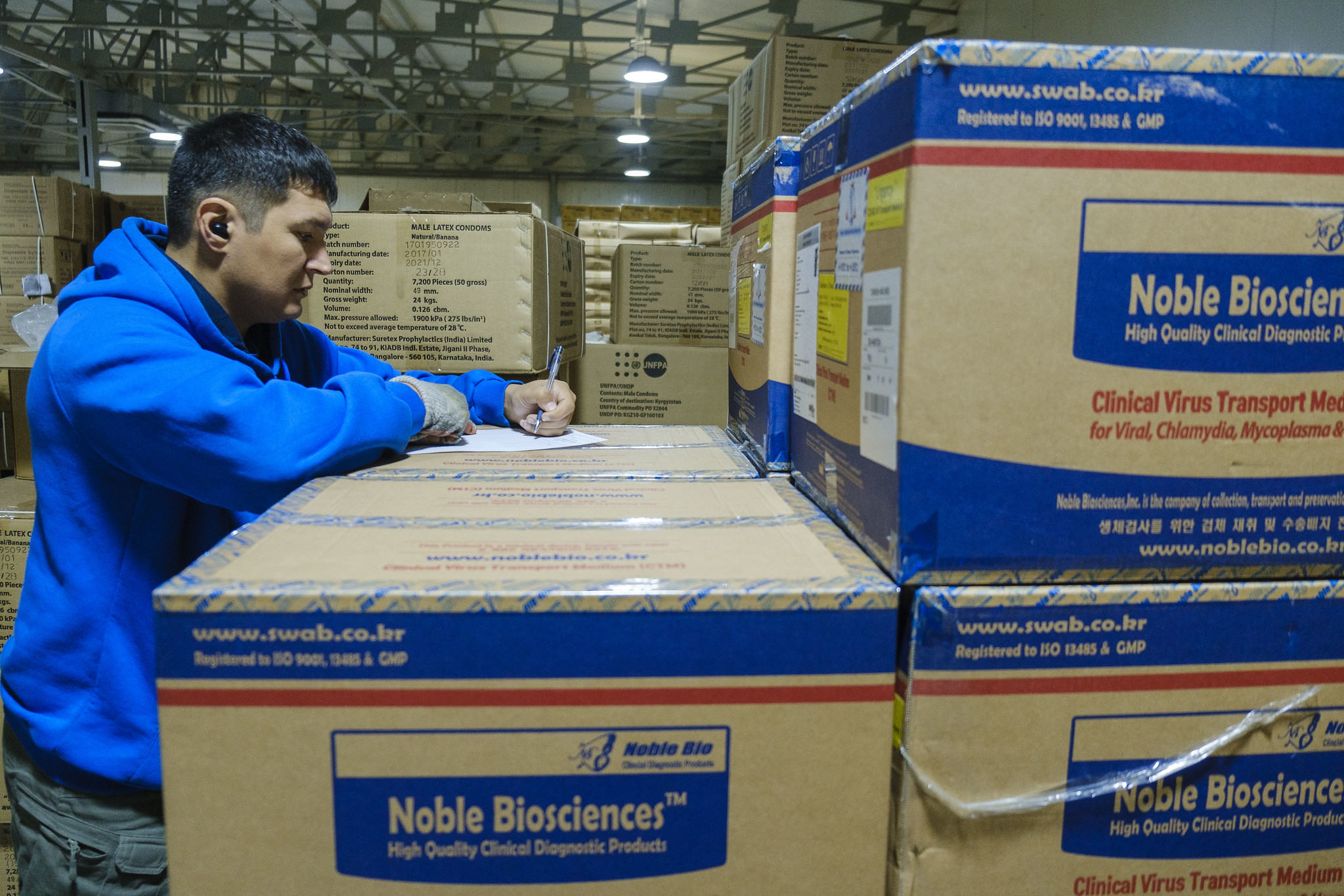Islam works in the UNDP warehouse, where all equipment, medical material, drugs and tests purchased under the Global Fund grant are stored.
UNDP behind the scenes: Working at the warehouse for HIV and TB programs
June 25, 2021
Working at the warehouse. Photo: Dmitry Motinov / UNDP Kyrgyzstan
Islam’s typical work day is far from the ordinary. When he comes into his “office” in the morning, he has to check the temperature and humidity; in fact, hundreds of lives literally depend on this. Islam works in the UNDP warehouse, where all equipment, medical material, drugs and tests purchased under the Global Fund grant are stored. Islam and his colleague Erkin are responsible for their safe storage and timely delivery, to make sure every person in need gets the best quality treatment in time.
“My job is to take the cargo, once it’s passed customs, to our warehouse, and to inspect it for integrity upon receipt: I have to check the conditions in which it was transported, and make sure that there are no defects. Afterwards, I find a place to store it and register all data (expiration dates, serial number, etc.) into our system with my colleague. We keep warehouse records and inventories. Then we inform the project and partners that we’ve received the shipment, and they decide how to distribute it. As soon as we get their instructions, we send the cargo accordingly. I also have to keep the warehouse clean, monitor storage conditions and optimize the space,” explains Islam, who has been working here for six years already.
Logistics, a key part of the project
Under the Global Fund’s grant, the UNDP supports national TB and HIV programs to provide the best quality prevention, diagnosis, treatment and care to people in need. This includes the procurement of a large amount of medication and other equipment, which is stored in a 780km2 warehouse in the caring hands of Islam and Erkin. It is essential that storage conditions are permanently monitored so that the drugs, tests and other material do not lose their effectiveness.
“Of course, we work together with the project specialists. But we must, in turn, promptly organize delivery. If there is some kind of problem in our work, it means that a patient will not get medication on time, will not receive treatment, and there may be complications. There will also be consequences if there are problems with storage. Tests may not show the right results, or spoilt drugs can give side-effects. Warehouse and transport logistics are a very important part of our project,” says Islam as he writes down the temperature one more time.
The temperature in the warehouse is always maintained between 15 and 25C, with a humidity rate of no higher than 50%. Medication and tests which need particular storage conditions are kept in special refrigerators. Islam also makes sure that nothing is stored at higher than 2.5m, since temperatures increase with height. The warehouse is equipped with round-the-clock security, video surveillance, fire alarms and generators in case of blackouts. The warehouse is used to store a wide range of goods required by TB, HIV and COVID-19 programs, including medical drugs, injections, tests and reagents, personal protective equipment, lab equipment, high-tech, prevention material, and food packages for vulnerable populations.
Working in the warehouse can be quite physical and tiring, but two days never look alike. “Usually, everything goes as planned: in the beginning of the month, we send our inventory to the project specialists, who, on this basis, order new equipment and plan distribution. But it happens that sometimes, there are patients who unexpectedly come to an organization and urgently need treatment, or that there are peaks, and we need to organize urgent delivery. Sometimes, we also receive very large and heavy cargo, and we have to work overtime and find a way to handle it,” explains Islam. Recently, Islam helped deliver a Computed Tomography to the National Infectious Diseases Hospital. The heaviest part weighed more than 2 tons.
Islam understands that a lot depends on his invisible, but indispensable work. “I’m proud to be part of this humanitarian organization,” says Islam. “There are people who really need our support, and, like a small link in a chain, I can help someone get timely treatment.”
Photos: Dmitry Motinov, Marion Biremon / UNDP Kyrgyzstan

 Locations
Locations







